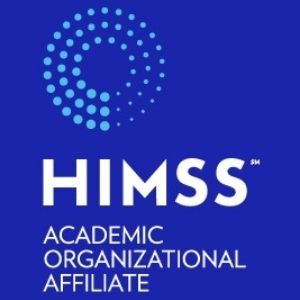Master of Science in Health Informatics (MSHI)
About

Health Informatics is defined as the intergration of Healthcare Sciences , computer science, information science, and cognitive science to assist in the management of healthcare information." (Saba & McCormick, 2015). The online MSHI Degree provides a foundation in business concepts needed to advance health information technologies (health IT). The goal of the MSHI online program is to develop comprehensive knowledge in the methodologies to acquire, store, retrieve, and use health information in medicine to support healthcare and research enterprises. MSHI will teach students to lead the creation and advancement and health equity in health informatics.
Program at a Glance
- Credits to Graduate: 35-credit hours
- Program Length: 14 months
- GMAT/GRE or Waiver: GMAT/GRE not required
- Tuition: $950 per credit hour
Virtual Information Sessions
Who
The ideal student will have a minimum of a bachelor’s degree and an interest in allied health, IT, or business. These individuals seek to work in areas of health informatics, e.g., clinical decision support, health IT, health management, telemedicine, project management, or consumer health informatics.
Leadership Track
Only 45% of hospital leadership is comprised of women and/or people of color. Most
minorities are underrepresented in healthcare and academic settings that specialize
in providing care to medically neglected populations. The Master of Science in Health
Informatics (MSHI)- Leadership Track prepares learners for advanced and high-level
roles in health IT, project management, product development, and process improvement.
In addition to the core MSHI courses, the student will complete courses on current
topics in healthcare, finance, and relationship building with key stakeholders. They
will complete a Leadership Practicum at the end of their program. This immersive experience
will match them with healthcare leaders that can help them develop solutions to improve
processes as well as identify their own leadership styles and strengths.
Concentration/Track Courses:
Current Topics in Health Administration
Finance of Health and Supportive Social and Educational Strategies
Relationship Building Through Negotiation, Mediation, and Conflict Resolution
Leadership Practicum
What
This 35-credit hour, 14-month, online degree is designed to give individuals the flexibility to pursue advance training in health informatics. The program offers students a unique combination of courses in a lockstep cohort format in clinical operations & communication, clinical decision support, health IT standards & interoperability, data mining & analytics, big data management, practical applications of machine learning & artificial intelligence (ML & AI), business fundamentals, and real world learning experiences through a hands on technical capstone practicum.
Potential MSHI Careers
- Health Informatics Consultants Clinical Informatics Analyst
- Clinical Data Analyst
- Chief Informatics Officer
- Health Informatics Specialists
- EHR Implementation Manager
- Health Information Technology Project Manager
Salary Range: $50,000- $200,000 ( depending on position and location)
Where
Online|Anywhere
Why
Health informatics uses IT to organize and analyze health records to improve healthcare outcomes. This discipline has been around for 30+ years, but the rate of growth of this market increased largely due to the American Recovery and Reinvestment Act (ARRA), which was signed into law in 2009. This law includes the Health Information and Technology for Economic Clinical Health Act (HITECH). HITECH formulated the Meaningful Use (MU) program under the Centers for Medicare and Medicaid Services (CMS).
According to the Bureau of Labor Statistics, the field of health informatics is estimated to grow at a rate > 25% every 10 years. This results in the creation of 50,000 new jobs every year. Hence, the health informatics workforce is one of the fastest growing sectors (Bureau of Labor Statistics). The infrastructure supporting this industry aims to improve healthcare quality, decrease medical errors, reduce health disparities, and advance delivery of patient-centered care to the historically underserved.
When
Online Course Calendar 2025 - 2026
| Fall 2026 (Term I) |
August 17th | October 11th |
| Fall 2026 (Term II) |
October 12th | December 6th |
| Deadlines |
Fall 2026 Cohort
|
|
Admissions and Tuition Information
Click here for information on admissions and tuition.


